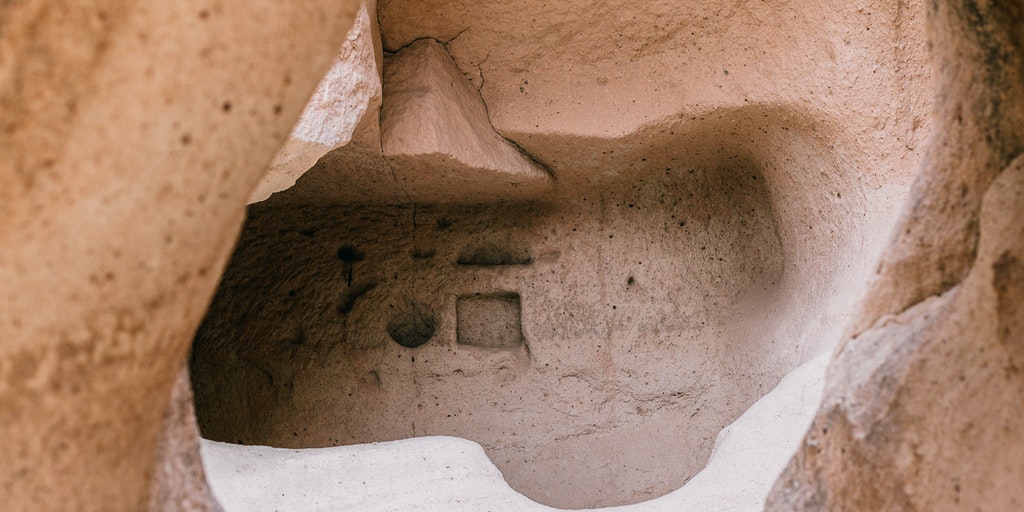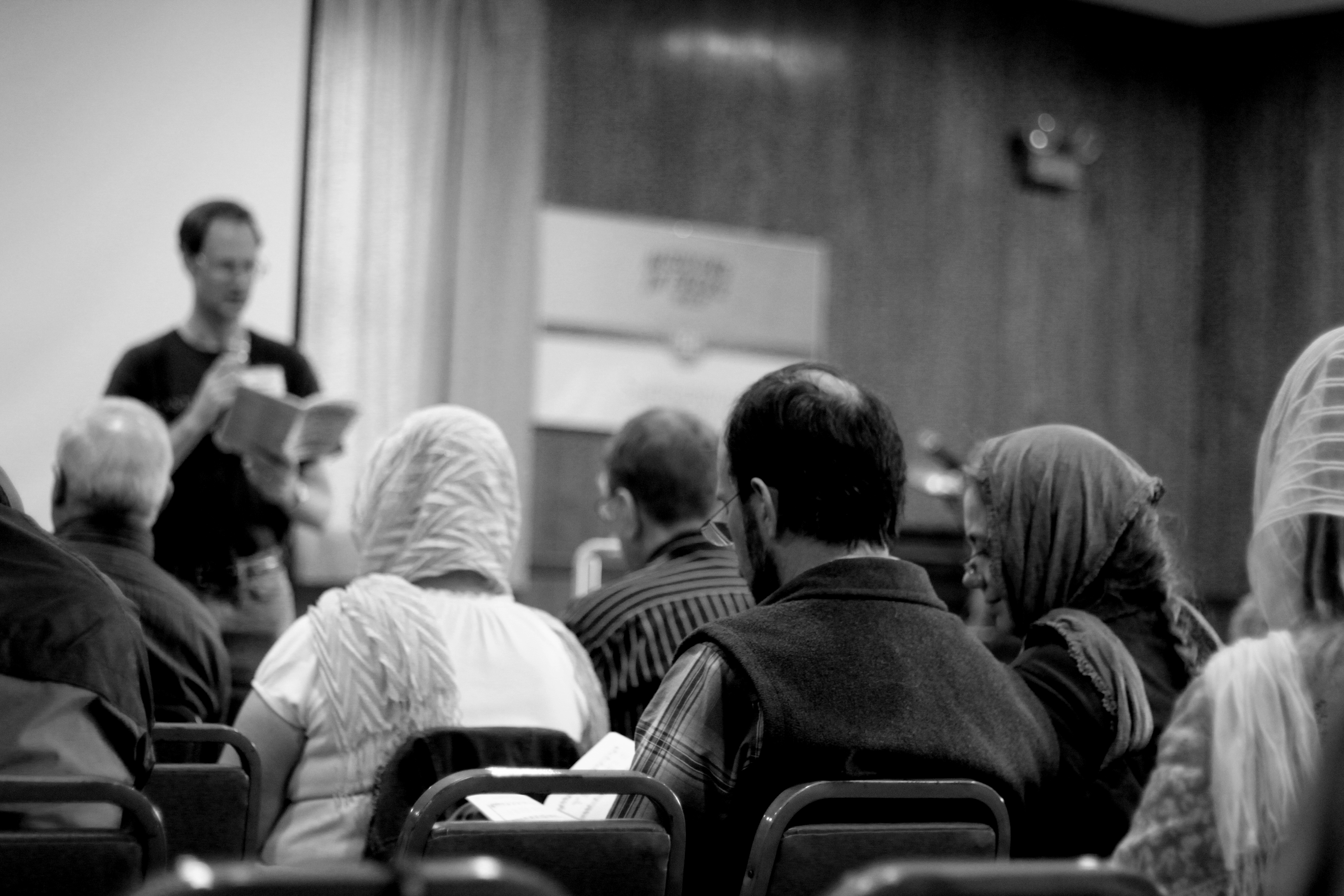Resurrection!

That the Father has been revealed in the Person of the Son, that there is a divine Person on earth, the Holy Spirit, and that there is a Man in heaven, the Lord Jesus Christ, is the essence of Christianity. All blessing for the Christian rests on the great work of redemption accomplished by the Lord Jesus on the cross, but we never could have received the divine blessing procured for us through the death of Jesus apart from His resurrection from among the dead. One of the great truths of Christianity is that there will be the raising from the dead of all who have died. The fundamentalists among the Jews believed in the resurrection of the dead, but it was not until the Son of God came into the world that the truths connected with resurrection were revealed.
The Valley of Dry Bones
Ezekiel beheld in the valley of dry bones an amazing vision, and he was told that it concerned “the whole house of Israel” (Ezekiel 37:11). The dry bones represented the nation of Israel buried among the nations that had led them captive, but the Lord assured the prophet that the time would come when the nation would be restored to the land of Israel. It is not the presentation of the raising of individuals from the dead, a truth clearly taught elsewhere, but rather of the national resurrection of God’s people Israel, who, on account of their sins, had been scattered and buried among the nations of the earth.
In Isaiah 18 another aspect of the restoration of Israel to the land of promise is given: there it is not the whole house of Israel, but only a small part of it. Indeed, this is probably what has taken place in our day, when the Israelis have been set up as a nation through the help given by Britain and America. Regarding the restoration of the nation, it is prophesied concerning the individuals, “And many of them that sleep in the dust of the earth shall awake, some to everlasting life, and some to shame and everlasting contempt” (Daniel 12:2). Not all who come back from the captivity among the nations will have divine blessing; for some it will be the judgment of God, as seen in Zechariah 13:8, where only one-third is left.
Prophecies of Christ’s Resurrection
There are many types, figures, and prophecies in the Old Testament that bring before us the death and resurrection of Christ: Adam was put into a deep sleep before he received his helpmate; Isaac was laid upon the altar before he was given back as in resurrection; Joseph went into the pit and into the dungeon before he came forth to be the savior of the world; Samson was held in the city of Gaza before rising at midnight to ascend to the top of the hill before Hebron with the doors of the gate of the city upon his shoulders; David went down into the valley of Elah and conquered the giant, bringing back his head and his sword; Benaiah went down into the pit on a snowy day, slew the lion, and came up victorious; Elijah crossed the Jordan and went up to heaven; Elisha crossed with him, then returned to accomplish his mighty works; and Jonah was three days and three nights in the belly of the great fish before entering upon his mission. These, and many more pictures from the Old Testament Scriptures, bring this great truth before us.
On the day of Pentecost, Peter recalled the prophecy regarding Christ’s resurrection in Psalm 16: “Thou wilt not leave My soul in hell, neither wilt Thou suffer Thine Holy One to see corruption. Thou hast made known to Me the ways of life” (Acts 2:27–28). Psalm 110, Isaiah 52 and 53, with many other Scriptures, direct our thoughts to the resurrection of the Son of God. Many of the Old Testament prophecies could not be fulfilled if Christ were not raised. All the glorious Messianic prophecies are based on Christ risen from the dead.
While on earth, the Lord plainly foretold His resurrection, recalling Jonah’s three days in the belly of the great fish, and telling His hearers that He would be three days and three nights in the heart of the earth. He also recalled that which was spoken of Himself in Psalm 110, “Sit thou on My right hand, till I make Thine enemies Thy footstool,” and said to the Jews when they asked Him for a sign, “Destroy this temple, and in three days I will raise it up” (John 2:19). Frequently He told His disciples that He would be crucified and rise again the third day (Matthew 16:21; 17:23; 20:19). Even the enemies of the Lord recalled what He had said about His rising again (Matthew 27:63).
Witness to the Resurrection
How unassailable are the proofs of the resurrection which the apostle Paul presents at the beginning of 1 Corinthians 15. Apart from the apostles, “above five hundred brethren at once” had seen the Lord, most of them alive when the apostle wrote. As to the appearance of Jesus in resurrection to the apostles, Luke wrote, “To whom also He showed Himself alive after His passion by many infallible proofs, being seen of them forty days” (Acts 1:3). Among the apostles who saw the Lord alive were Matthew and John, who have written of the resurrection in the Gospels that bear their names. Simon Peter, too, in his First Epistle, writes of “the resurrection of Jesus Christ: Who is gone into heaven, and is on the right hand of God” (1 Peter 3:21–22).
Paul had not known the Lord on earth, yet he saw Him risen from the dead, seated in heaven, even as he writes, “And last of all He was seen of me also, as of one born out of due time” (1 Corinthians 15:8). The risen Christ appeared only to chosen witnesses, but He will yet appear to all the nation. Paul anticipated that day, for he too was chosen to be a witness to the risen Christ.
Divine Power Displayed in Resurrection
Divine authority is demonstrated in the Son of Man having judgment committed to Him; but divine power is displayed in resurrection, whether as seen in Christ raising the dead on earth, in His own resurrection, or in the raising of all the dead in the first and final acts of raising the dead. Paul tells us that Jesus is “declared to be the Son of God with power…by the resurrection from the dead” (Romans 1:4); and that the “exceeding greatness” of God’s power was made known “when He raised Him from the dead” (Ephesians 1:19–20). This was the power seen in raising the daughter of Jairus, the widow of Nain’s son, and Lazarus from death and corruption.
Results of Christ’s Resurrection
Having entered into death, the Son of God came out as the victor, leading “captivity captive” and ascending “up far above all heavens, that He might fill all things” (Ephesians 4:8–10; Colossians 2:15). Through death, the risen Christ annulled “him that had the power of death” (Hebrews 2:14), and “abolished death, and has brought life and immortality to light through the Gospel” (2 Timothy 1:10). The risen Son of Man has said, “I am He that lives, and was dead; and, behold, I am alive for evermore, Amen; and have the keys of hell and of death” (Revelation 1:18).
All the blessings brought to the saints of God depends upon the death and resurrection of Christ, whether it be justification or salvation (Romans 4:25; 10:9), or all that we enjoy “in Christ” in the heavenly places. Although these blessings were in the counsel of God for us, they have been secured to us through Christ entering into death and rising again. The apostle Peter also brings this before us where he writes, “Blessed be the God and Father of our Lord Jesus Christ, which according to His abundant mercy has begotten us again to a lively hope by the resurrection of Jesus Christ from the dead” (1 Peter 1:3).




